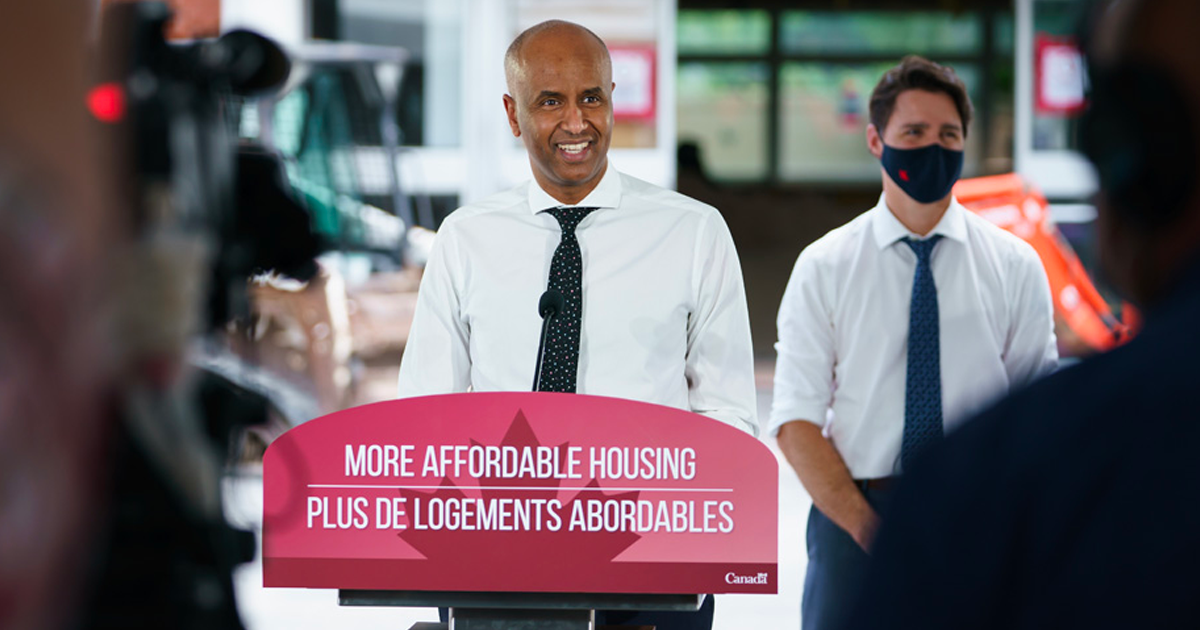During the 1993 federal election campaign, Jean Chrétien—mentor to current Prime Minister Justin Trudeau—accused the Progressive Conservative Party of talking out both sides of its mouth after the latter ran an ignominious attack ad likening the Bell’s palsy-afflicted Liberal candidate’s face to a monster’s.
It is widely believed that Chrétien’s quip sunk incumbent PC PM Kim Campbell’s election bid.
Fast-forward three decades and Chrétien’s one-time mentee is guilty of the same sin.
One of Trudeau’s 2021 campaign promises was a two-year foreign buyer ban on residential real estate, which his party subsequently voted down about a year ago, only to suddenly codify it in January with the Prohibition on the Purchase of Residential Property by Non-Canadians Act.
The Liberals also raised Canada’s immigration target to 500,000 per annum, beginning this year; in tandem, the policies will exacerbate renters’ plights, especially in the Greater Toronto and Hamilton Area, because many would-be buyers now have nary a choice but to rent, pitting them against desperate domestic renters grappling with excessive demand and low supply.
Canada will receive an additional 300,000 to 400,000 permit workers annually, and should historical patterns hold, the majority of both cohorts will settle in Canada’s largest conurbation extending from Toronto to Hamilton.
“Rents are so high now, I can’t imagine what they will be in the next couple of years when we have a million new people here,” Toronto-based Isaac Quan, managing broker at Living Realty Downtown, told True North, adding that downtown Toronto rents hover around $2,500 a month.
“I, and several of my colleagues, have clients from Hong Kong, China, Japan, and the U.S. moving to Toronto who wanted to purchase a home but now can’t for two years, and that takes away a unit from another domestic renter. That makes the demand problem worse for Torontonians to compete against, and it pushes prices up.”
Canada’s scorching housing market has been driven by domestic buyers throughout the Covid crisis because of quantitative easing, and while a foreign-buyer proscription would have helped before March 2020, it’s intended impact isn’t merely nominal today, it’s deleterious.
Many arrivals are well-heeled and habituated to exorbitant rents, and Quan believes—because they haven’t Canadian credit scores or job experience to attenuate landlords’ concerns—they will outbid domestic competition by offering up to two years’ worth of rent upfront. This could rapidly upsurge rental prices because of built-in market projections.
It should be noted that it’s illegal for landlords to ask for such concessions, but they’re free to accept those offers.
Rising interest rates and buyer reticence have compelled condo developers, whose buildings provide secondary rental units, to delay projects, but that means fewer units will be completed in five years, worsening demand.
“So, if there’s a shortage now and we’ve brought in 2.5 million immigrants in five years without anything new being finished, there will be a problem,” Quan said. “It doesn’t take an economist to figure that out.”
It isn’t surprising Canada has increased its immigration quota in the wake of the Liberals’ generous Covid-19 benefits program, because the existing tax base is too paltry to repay the deficit. The fertility rate among Canadian-born residents is also dangerously low.
But Tony Irwin, president and CEO of the Federation of Rental-Housing Providers of Ontario (FRPO), says if Canada needs immigrants policymakers should create, not stymie, fertile conditions to house newcomers.
“We need more housing, not less, and we need to encourage investment in the country, and this kind of legislation is quite unhelpful in that regard. We need all hands on deck right now,” Irwin said.
“[The two-year foreign buyer ban] is absolutely going to make matters worse. It’s a policy that will stifle development and stifle building of the rental housing we need. It’s not a good policy and it’s something the government should revisit.”





















